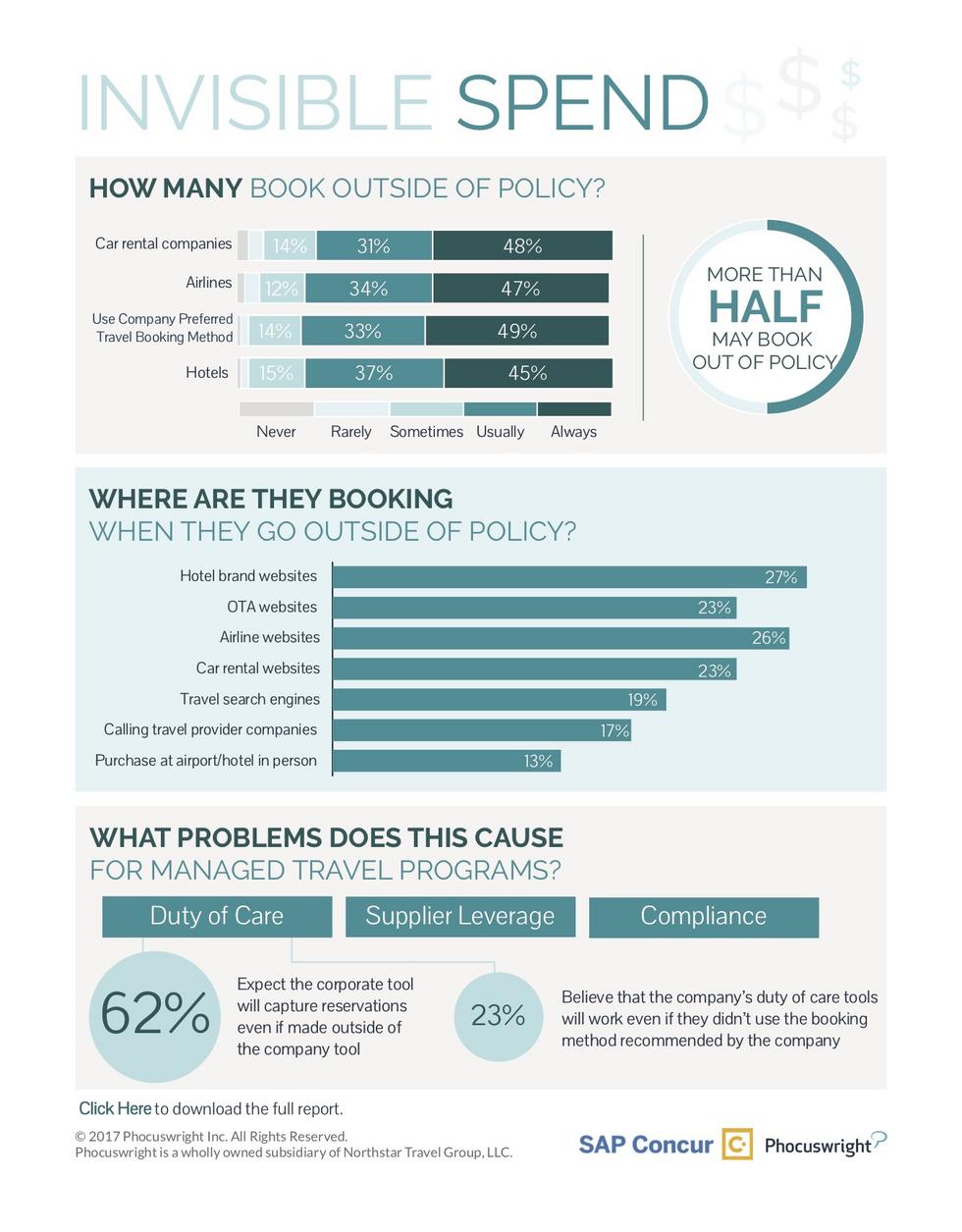Travel and Expense
How the Traveler’s Shift to Mobile Booking Impacts Your Travel Program
Travel technology has changed substantially in the past decade – and continues to change. In 2017 Phocuswright surveyed 2,300 travelers regarding their business travel booking habits and found that 88% of business travelers use a smartphone, more than those who use laptops. So, it may come as no surprise that a shift toward mobile bookings has occurred over the past few years. Even those in the Baby Boomer generation are booking directly with suppliers through mobile apps. Let’s look at a few ways this shift can affect your travel program.
1. An increase in invisible spend
Invisible spend, also defined as travel data not captured by traditional means, such as TMC reporting, is one of the biggest challenge for travel managers. Solutions have been developed to bring in much of this invisible spend, but travel managers must continue to watch for new channels from which invisible spend can creep in and grow. One such channel is new supplier-agnostic booking apps that are independent of online travel agencies and increase the odds that a traveler may book with out-of-policy suppliers.
2. The inability to provide proper duty of care
Most companies offer traveler safety programs to their employees. But, Phocuswright’s research indicates that most travelers aren’t aware of these programs, or how their corporate booking tools and supplier relationships impact the travel manager’s ability to keep them safe. Of the business travelers surveyed, 50% stated that they had made a new hotel booking on their smartphone, meaning duty of care programs that are largely dependent on TMC reports may be missing a significant amount of critical data.
3. A decrease in policy compliance
Travelers often strive with good intentions to find the lowest rates for their company by booking through an outside channel. But, many don’t realize that by not using recommended booking channels they can negatively impact the leverage their company has during supplier negotiations. The increase in the percentage of travelers booking through a smartphone coincides with an increase in the number of travelers surveyed who state they “usually” adhere to booking travel in-policy, as opposed to “always”. As this trend continues, online attachment rates will no longer be the only valid metric for measuring hotel channel compliance.
Download the report from Phocuswright for more insight into these changing traveler behaviors and see why it’s imperative that the best run travel programs capture and monitor 100% of spend no matter where it is booked.

